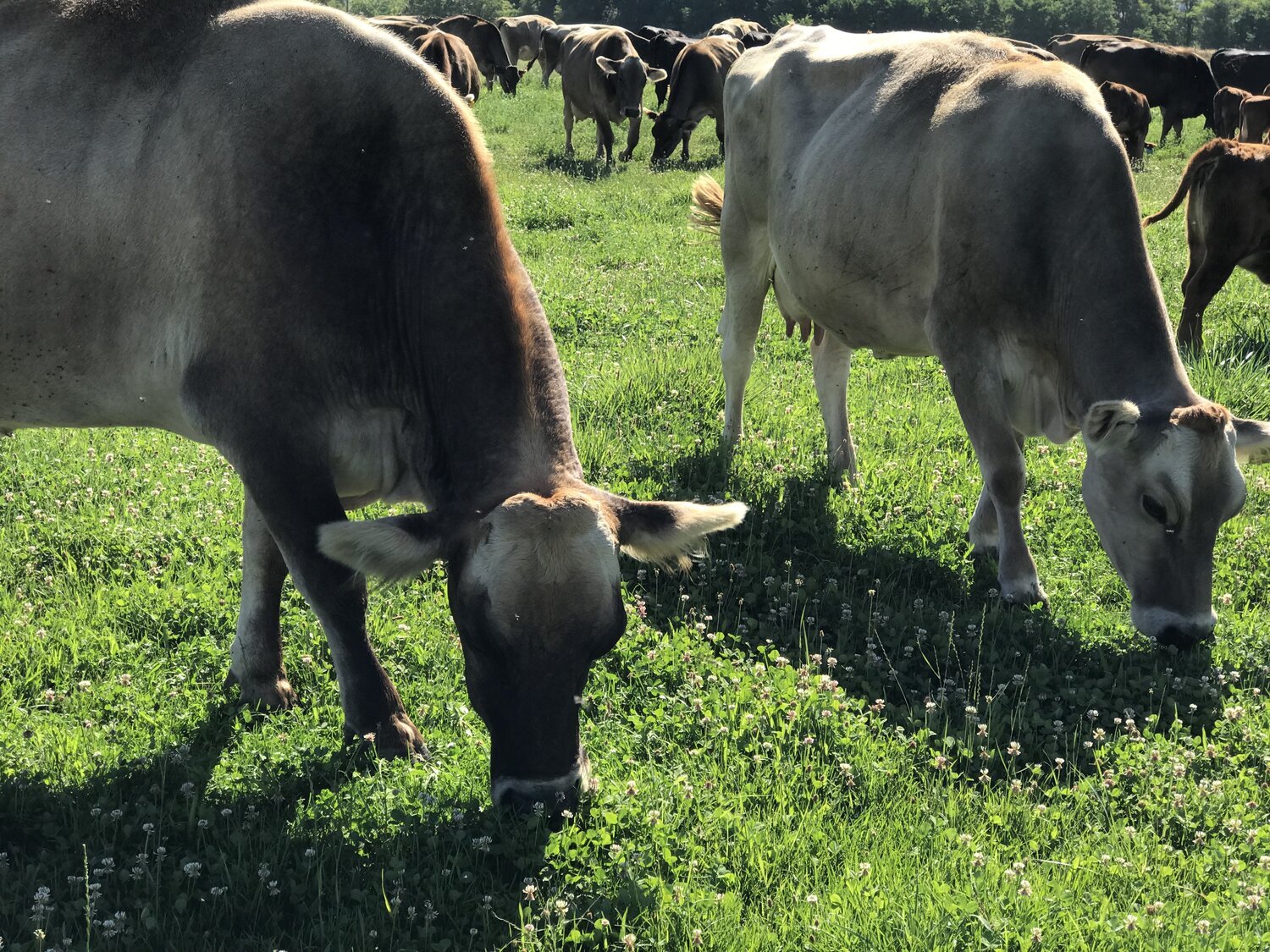from Courtney Meyerhofer
Is grass fed beef better for the environment?
In recent times, many are espousing the belief that we need to stop eating meat, particularly beef, for the sake of environmental health.
Meat rations? Beef is killing the planet? There’s a lot of sensationalism out there using fear and half-truths to garner views and attention.
In the Information Age, it can be difficult to parse through the truth when news sources seem to contradict each other and seem to reinforce their own views.
Myth: Beef production requires too many greenhouse gas emissions and has a large carbon footprint.
Truth: Grass fed beef can be a net carbon sink when rotational grazing is used.
Contrary to popular belief, grass fed beef may be a net carbon sink.
The keys to putting carbon back into the ground is to prevent overgrazing and over-tilling. When plants are not tilled, their root structures can grow several feet deep, sometimes up to 12 feet below the surface. These roots are essential to break up compacted soil, build topsoil, and sequester carbon.
When pastures are overgrazed, the plants can be killed and the soil is negatively affected. When enough grazing has occurred and the ground has been fertilized by the cow’s manure, the plants are stimulated to grow and this is where regeneration happens.
A study from Michigan State compared the effect of conventional feedlot agriculture and adaptive multi-paddock grazing (a strategy using fencing to move cows from section to section to prevent overgrazing) on the carbon lifecycle over a period of 4 years.
The study concluded that while the feedlot system produced fewer greenhouse gases, multi-paddock grazing produced a net carbon sink.
The cows put carbon back into the soil! This means that well managed farms, working in harmony with nature, can be a net positive to our environment. This is the small, organic, grass-fed difference.
Our organic, grass-fed beef farm works in tandem with nature to regenerate soil, maintain wildlife ecology, protect water and air quality, and put carbon back into the earth.
Myth: Beef production causes significant habitat loss to wildlife.
Truth: Grass fed organic beef farms are a haven for wildlife.
Habitat loss and pesticide use are the two biggest drivers of wildlife decline, so we can’t ignore the harm caused to wildlife by conventional agriculture, even if these farms claim to be “environmentally friendly” because they are producing corn and soy instead of meat and dairy.
A common argument against meat consumption and production is that growing livestock feed (corn and soy) is a significant cause of habitat loss, an argument that seeks to equate meat eating with the destruction of natural habitat for much of wildlife across the globe.
The truth is complicated because not all meat production is the same. Our organic, 100% grass-fed and grass-finished beef farm is a haven for wildlife, and this is often true of organic farms because they seek to work in harmony with the natural world.
Rainforests, grasslands, and other large, fertile swaths of land across the world are mowed down daily to plant lucrative corn and soy cash crops. A large portion of this corn and soy goes to livestock feed, for poultry, beef, and pork farms.
This is very unfortunate because these forests and wild lands that serve the wildlife may never return to their full beauty. In this way, our farm doesn’t contribute to habitat loss because we are organic and 100% grass-fed. By stewarding the land well and feeding our cows a species appropriate diet, we also make room for the native species to continue living and thriving.
Myth: There’s not a substantial difference in environmental impact between grain fed and grass fed beef.
Truth: Organic grass fed beef production is safer for our environment and regenerates soil once depleted from conventional agriculture while grain fed beef production strips the soil.
At a baseline, the USDA organic certification requires that no commercial petrochemicals, fertilizers, pesticides, or herbicides are used on our pastures, and that everything the animals eat are GMO-free. These contaminants are commonly used to grow grain for grain fed beef, and they are harmful to the soil microbes.
Our cows are organically grass-fed and pasture-raised. When grain fed cows are confined to a feedlot, unsanitary conditions for the cows and high concentrations of animal waste runoff pollutes groundwater and surface streams and rivers.
Beyond the organic concentrates from the animals themselves, there is almost always a large amount of antibiotic and drug content in the runoff since the beef are highly medicated to attempt to ward off disease in those atrocious conditions.
All of these substances sink into the ground and contaminate the soil, air, and water.
Our organic and grass-fed practices protect wildlife, water purity, air quality, and soil health for future generations.




